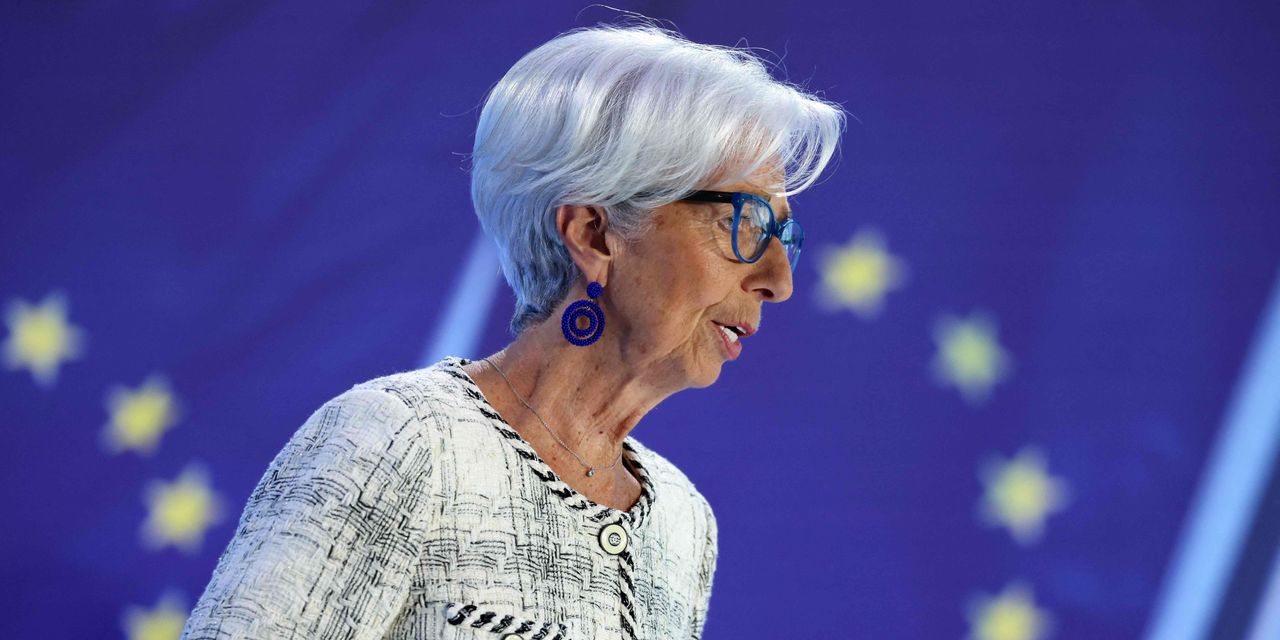The euro and German government bond yields fell after the European Central Bank raised interest rates, but implied further increases in borrowing costs were less likely.
The ECB pushed up its deposit rate by 25 basis points to an all-time high of 4% as it strives to damp inflation which it predicts will be an average 5.6% in 2023, way above its 2% target.
However, the central bank is also aware that parts of the eurozone are seeing weak economic activity, notably in Germany, and its statement accompanying its rate hike suggested it would be more cautious in further tightening policy.
“Based on its current assessment, the Governing Council considers that the key ECB interest rates have reached levels that, maintained for a sufficiently long duration, will make a substantial contribution to the timely return of inflation to the target,” the ECB said.
The move was a “dovish hike”, according to analysts. “With the business surveys indicating an imminent sharp slowdown in growth, the ECB are probably done hiking,” said Mike Bell, Global Liquidity Market Strategist at J.P. Morgan Asset Management.
Consequently the euro
EURUSD,
fell 0.6% to $1.0664 and the 10-year German bond yield
BX:TMBMKDE-10Y
lost 4.4 basis points to 2.611% shortly after the announcement.
Traders were next waiting to see what ECB President Christine Lagarde says at a press conference, which is due to start at 2:45 p.m. local, or 8:45 a.m. Eastern.
Elsewhere, London’s FTSE 100
UK:UKX
led the region’s stock market gains, advancing 0.9% as its bevy of resources groups reveled in higher prices for industrial commodities.
Energy giants BP
BP,
and Shell
SHEL,
were firmer as Brent crude
BRN00,
rose above $93 a barrel for the first time since November as traders continued to price in extended production cuts by Saudi Arabia and Russia.
Hopes for stronger demand from China also supported oil after the People’s Bank of China cut its reserve requirement ratio for most banks by 25 basis points, the second such cut this year.
The loosening of monetary policy by Beijing lifted hopes for metal demand, too, pushing up copper prices
HG00,
and encouraging rallies of around 5% for miners like Anglo American
AAL,
Rio Tinto
RIO,
and BHP
BHP,
Among the worst performers in the Stoxx 600
XX:SXXP
was London-listed THG
THG,
Shares in the beauty and lifestyle ecommerce group, which are down about 90% since the start of 2021, plunged 20% after it revealed a £100 million ($125 million) first-half operating loss on higher costs and trimmed sales forecasts.
“THG continues to face an uphill battle to be seen as a credible business with the market,” said Russ Mould, investment director at AJ Bell. “Another period of operating losses and with more moving parts than a Swiss watch, it’s no wonder that investors struggle to get their head around exactly what this company is trying to do. The word ‘adjusted’ is used 118 times in the half-year results, which says it all.”
Germany’s DAX index
DX:DAX
underperformed with just a 0.1% gain as investors in automakers such as Volkswagen
VOW,
BMW
BMW,
and Mercedes-Benz
MBG,
were rattled by Beijing pushing back against the European Union’s decision to investigate subsidies provided to China’s electric vehicle manufacturers.
Read the full article here








